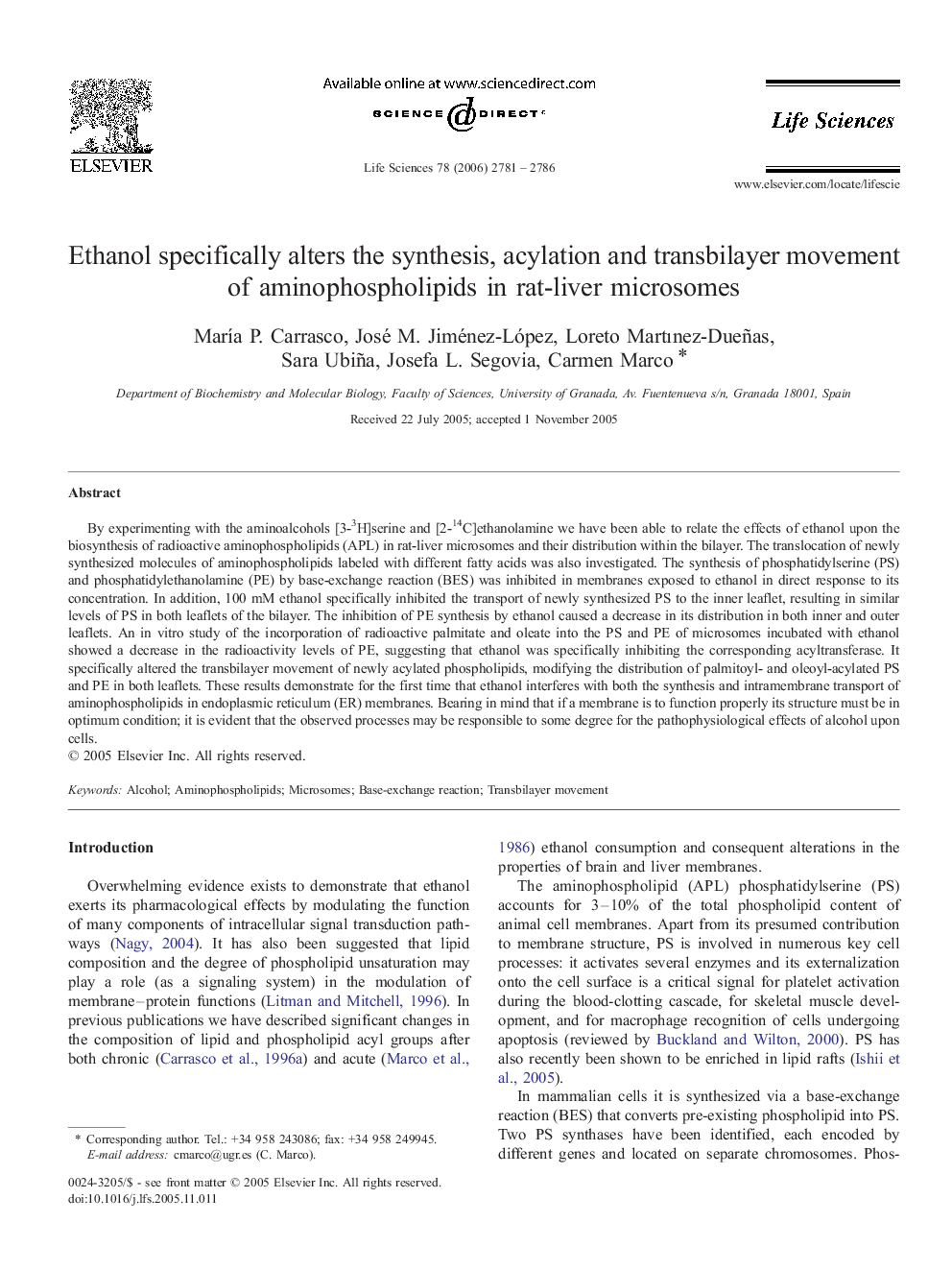| Article ID | Journal | Published Year | Pages | File Type |
|---|---|---|---|---|
| 2554922 | Life Sciences | 2006 | 6 Pages |
By experimenting with the aminoalcohols [3-3H]serine and [2-14C]ethanolamine we have been able to relate the effects of ethanol upon the biosynthesis of radioactive aminophospholipids (APL) in rat-liver microsomes and their distribution within the bilayer. The translocation of newly synthesized molecules of aminophospholipids labeled with different fatty acids was also investigated. The synthesis of phosphatidylserine (PS) and phosphatidylethanolamine (PE) by base-exchange reaction (BES) was inhibited in membranes exposed to ethanol in direct response to its concentration. In addition, 100 mM ethanol specifically inhibited the transport of newly synthesized PS to the inner leaflet, resulting in similar levels of PS in both leaflets of the bilayer. The inhibition of PE synthesis by ethanol caused a decrease in its distribution in both inner and outer leaflets. An in vitro study of the incorporation of radioactive palmitate and oleate into the PS and PE of microsomes incubated with ethanol showed a decrease in the radioactivity levels of PE, suggesting that ethanol was specifically inhibiting the corresponding acyltransferase. It specifically altered the transbilayer movement of newly acylated phospholipids, modifying the distribution of palmitoyl- and oleoyl-acylated PS and PE in both leaflets. These results demonstrate for the first time that ethanol interferes with both the synthesis and intramembrane transport of aminophospholipids in endoplasmic reticulum (ER) membranes. Bearing in mind that if a membrane is to function properly its structure must be in optimum condition; it is evident that the observed processes may be responsible to some degree for the pathophysiological effects of alcohol upon cells.
